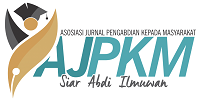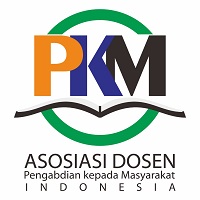Reswara is a community service journal published and managed by the Institute for Community Service at Universitas Dharmawangsa (LPkM UNDHAR).
Focus
This journal emphasizes publishing scientific works resulting from Community Service (PkM) activities that utilize science, technology, and art to empower communities and advance sustainable development (SDGs). Its main goal is to encourage integration among education, research, and service within the framework of the Tri Dharma Perguruan Tinggi (Three Pillars of Higher Education), aiming to achieve measurable and lasting social impact.
The journal accepts manuscripts from diverse disciplines that highlight collaboration among universities, government, the private sector, and the community in tackling social, economic, cultural, health, educational, and environmental challenges.
Scope
The journal's scope includes community service practices focused on community empowerment, practical problem solving, and capacity building. Relevant fields include, but are not limited to:
1. Community empowerment and capacity building
- Community training, mentoring, and skills improvement programs.
- Strengthening local social, economic, and educational institutions.
- Entrepreneurship and creative economy development based on regional potential
2. Education and social literacy
- Digital literacy, financial literacy, and environmental literacy programs.
- Service learning and community-based education models.
- Learning innovations that involve the community as active partners
3. Health and social welfare
- Community health services, nutrition education, and promotion of healthy lifestyles.
- Disaster mitigation training and basic life support.
- Strengthening mental and social health at the community level
4. Appropriate technology and social innovation
- Application of research results and technology to solve community problems.
- Social innovation and technology engineering based on local needs.
- Development of circular and environmentally friendly economic models
5. Environment and sustainability
- Environmental conservation programs, natural resource conservation, and waste management.
- Climate change adaptation and mitigation.
- Community-based environmental education
6. Collaboration and public policy
- Cross-sector collaboration (academics, government, industry, and community).
- Research-based policy analysis and implementation to improve community welfare.
- Synergy models between community service, research, and policy development
Prioritized Principles of Community Service
In line with the principles discussed in community service methodology literature, this journal prioritizes articles that align with the following values:
- Participatory – actively involving the community in all stages of the program.
- Collaborative – promoting cross-disciplinary and cross-sector partnerships.
- Sustainable – demonstrating the long-term impact and continuity of activities.
- Relevant and Evidence-Based – compiled based on valid research results and data.
- Empowerment-Oriented – increasing community capacity, not merely assisting
Editorial Objectives
By establishing this focus and scope, the journal aims to:
- Improve the quality and relevance of community service articles.
- Provide a scientific forum for academics and practitioners to share best practices.
- Encourage innovation and synergy between academia and society.
- Support the achievement of Sustainable Development Goals (SDGs) through research-based community service activities
























